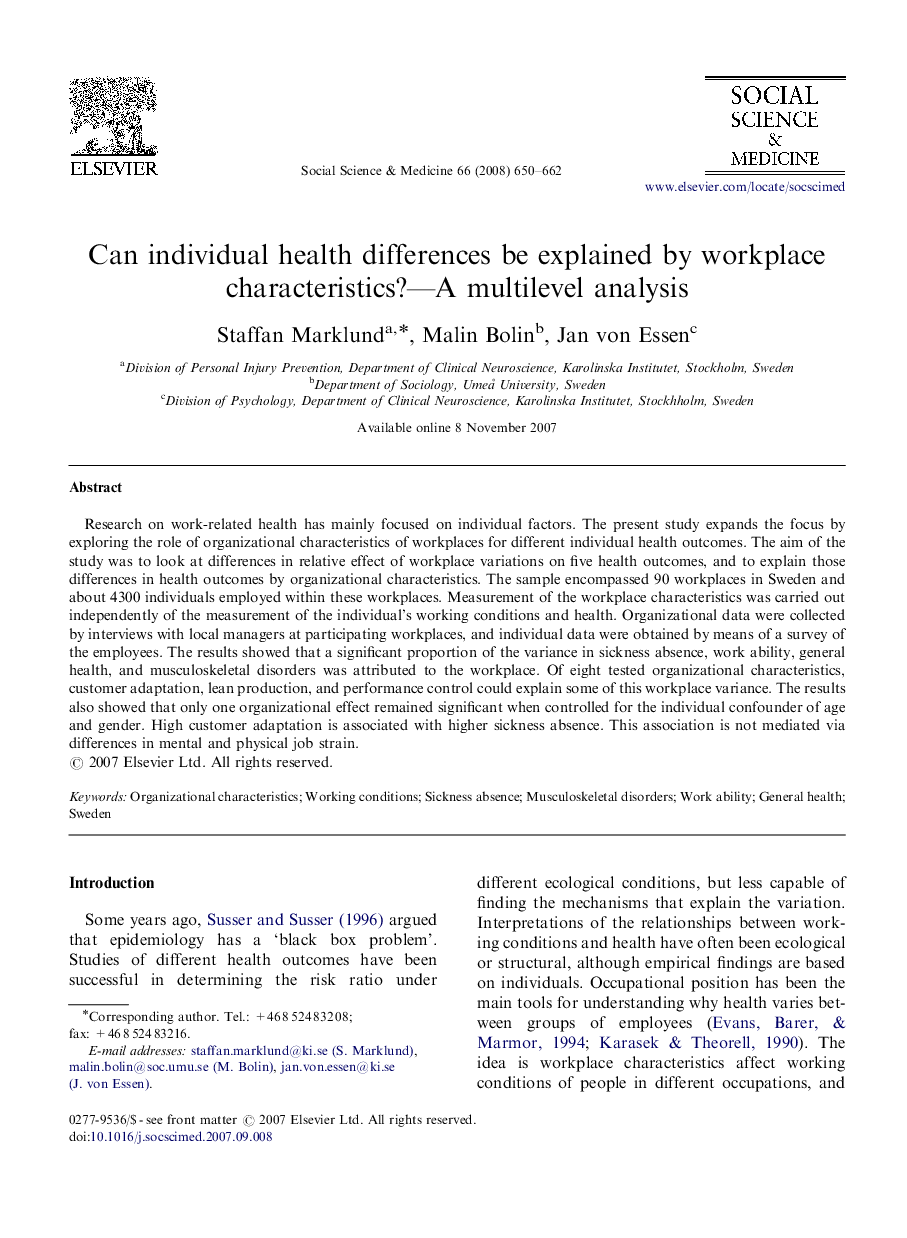| Article ID | Journal | Published Year | Pages | File Type |
|---|---|---|---|---|
| 953564 | Social Science & Medicine | 2008 | 13 Pages |
Research on work-related health has mainly focused on individual factors. The present study expands the focus by exploring the role of organizational characteristics of workplaces for different individual health outcomes. The aim of the study was to look at differences in relative effect of workplace variations on five health outcomes, and to explain those differences in health outcomes by organizational characteristics. The sample encompassed 90 workplaces in Sweden and about 4300 individuals employed within these workplaces. Measurement of the workplace characteristics was carried out independently of the measurement of the individual's working conditions and health. Organizational data were collected by interviews with local managers at participating workplaces, and individual data were obtained by means of a survey of the employees. The results showed that a significant proportion of the variance in sickness absence, work ability, general health, and musculoskeletal disorders was attributed to the workplace. Of eight tested organizational characteristics, customer adaptation, lean production, and performance control could explain some of this workplace variance. The results also showed that only one organizational effect remained significant when controlled for the individual confounder of age and gender. High customer adaptation is associated with higher sickness absence. This association is not mediated via differences in mental and physical job strain.
